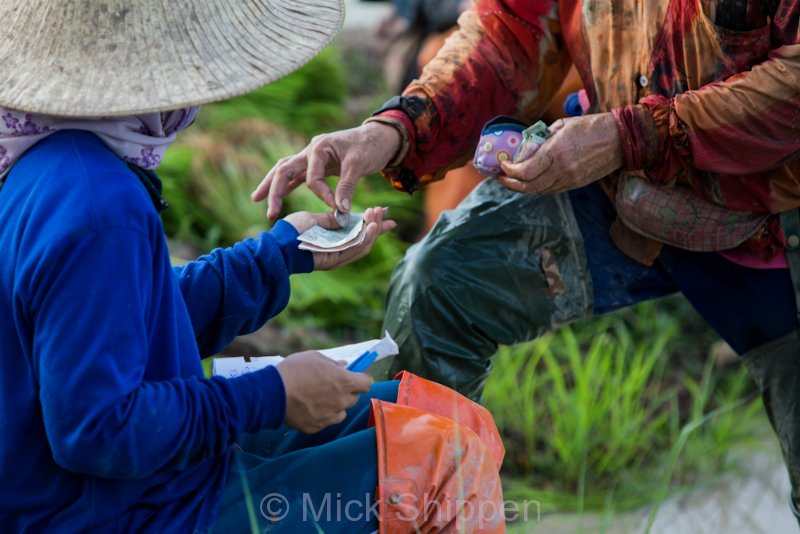Rice Planting in Thailand
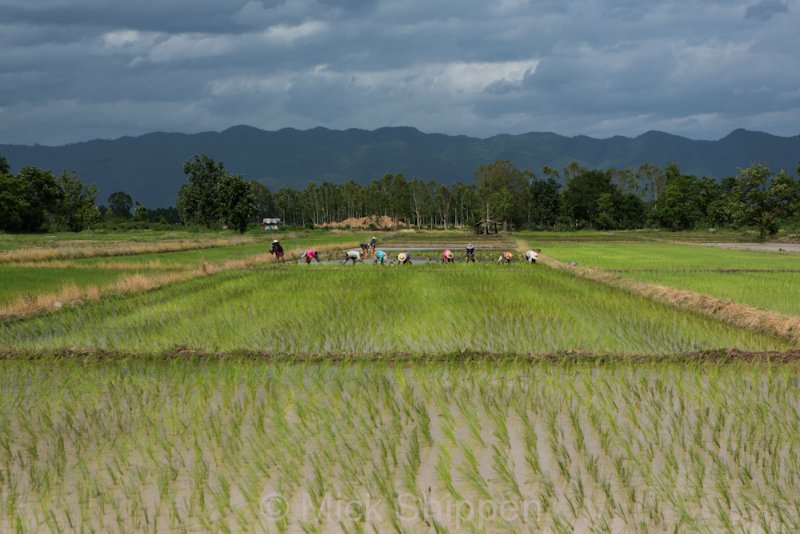
I’ve just returned from four days in Phayao near Chiang Rai in northern Thailand where I was on a photo-assignment for an international grower and exporter of organic rice.
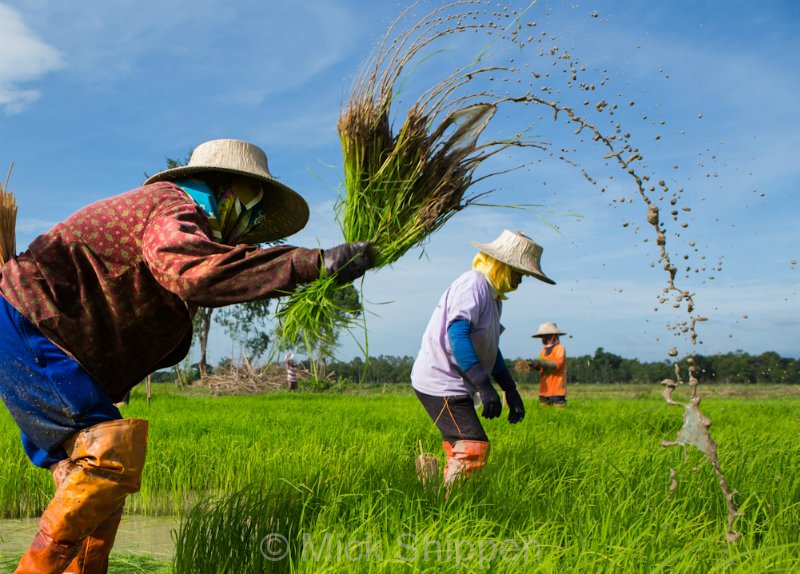
With the rainy season in full swing, it’s time for farmers to uproot the seedlings from the nursery beds and replant in the flooded paddy fields. It’s backbreaking work but a task seemingly enjoyed by the workers and the air is filled with constant chatter, particularly when a farang wades through the mud with a camera slung over his shoulder.
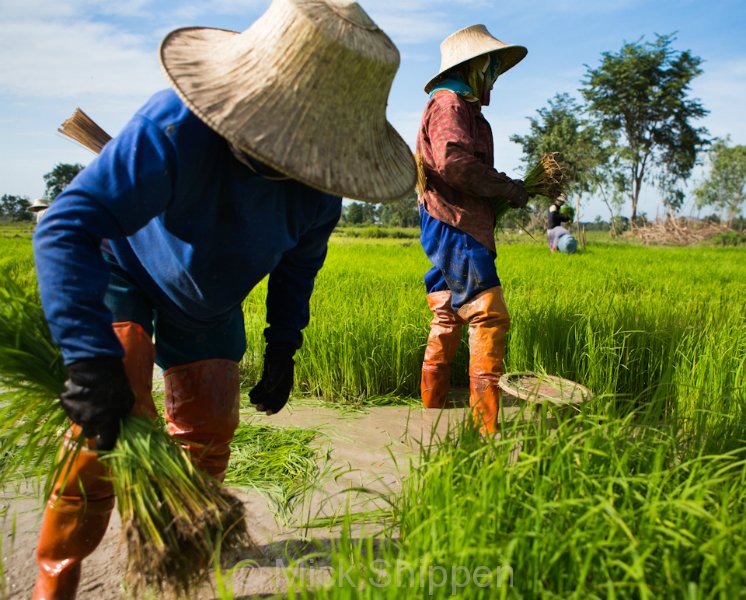
Work usually starts about 8 a.m. and the morning is spent bunching seedlings which are then carried in baskets to a neighbouring paddy where they’ll be replanted in the afternoon.
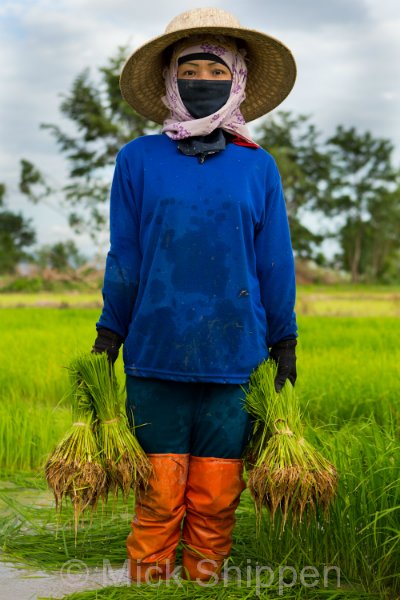
The team are paid one baht a bunch and a good worker can earn 400 – 500 baht a day. Interestingly with one or two exceptions most of them are in their 40s or 50s, even older, as youngsters shy away from the physical labour, preferring easier and cleaner work in the cities. It’s all a little ominous for the future of rice farming in Thailand and although steps have been taken to automate the planting process, it has not yet been perfected and hand planting is still preferred by many.
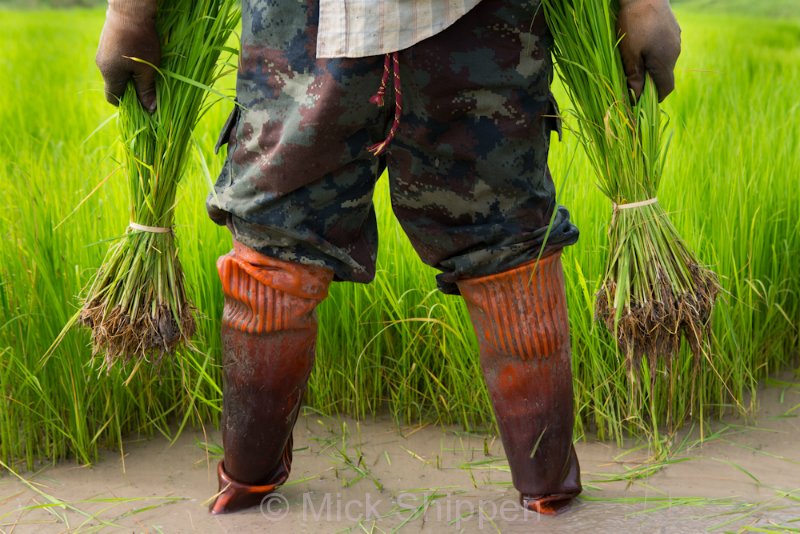
In some areas direct broadcasting is done and no replanting carried out but yields can be up to 15 percent lower. The working day ends around 5 or 6 p.m. with an alfresco bottle of rice whisky to ease aching muscles.
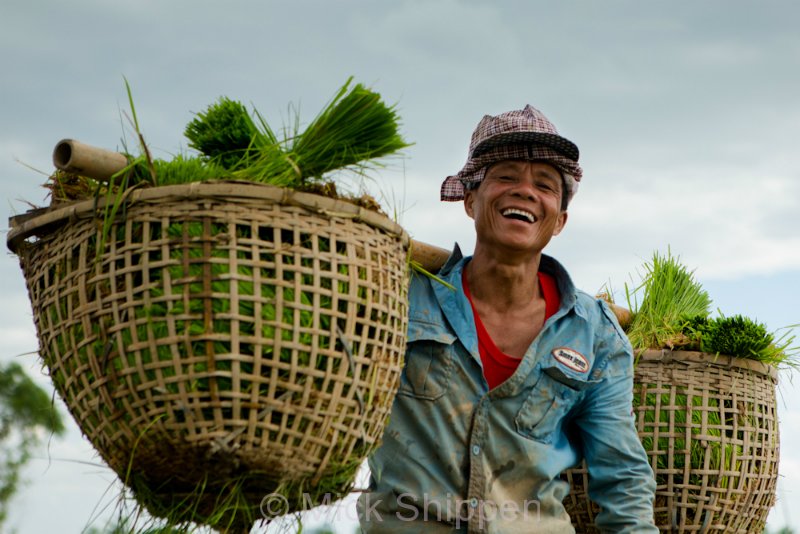
As with any outdoor manual labour in Thailand, the men and woman keep their faces well protected from the sun with scarves and t-shirts. This is particularly important in the rice fields as the sun reflects off the water. When the veils are withdrawn though, there’re plenty of beauties to be seen.
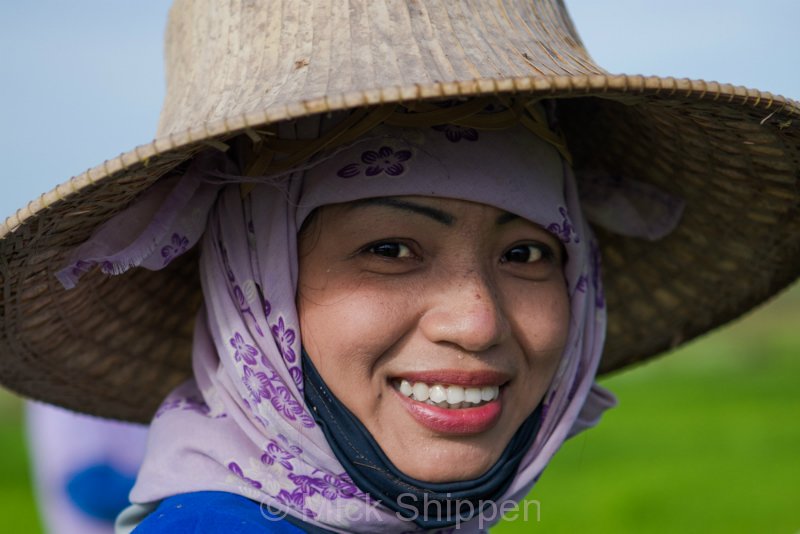
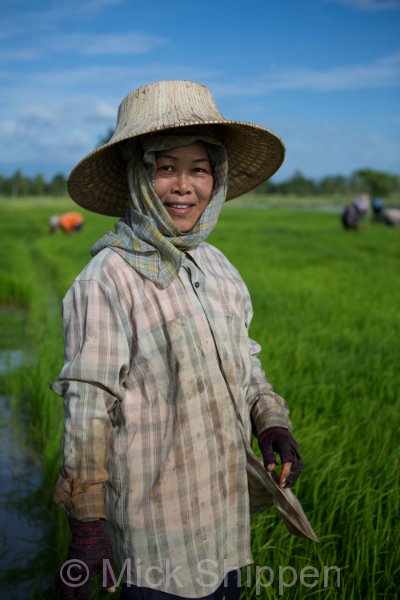
It’s impossible to underestimate the importance of rice in Thailand; a grain that has shaped the landscape and defined the culture. Served at every meal, the preferred choice is jasmine rice, also known as fragrant rice due to it pleasant aroma. In the north and northeast sticky rice or khao neow is more popular. Sticky rice also features in a number of desserts and many sweets are made using rice flour.
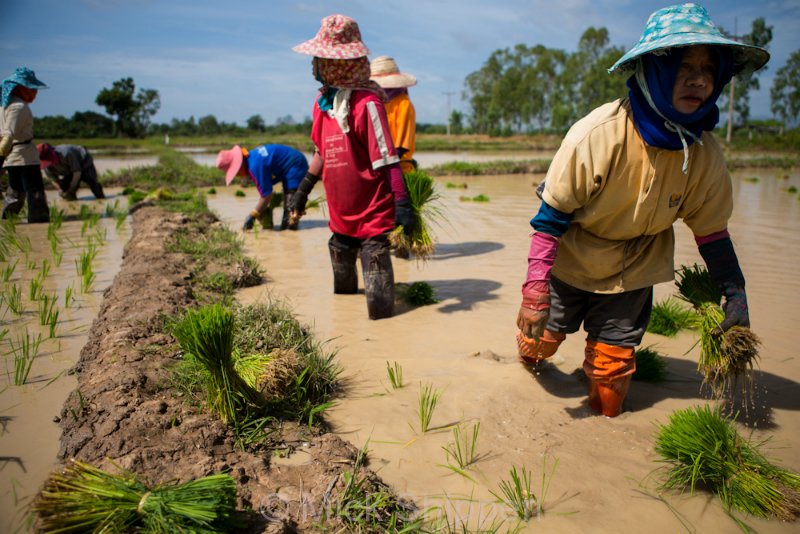
Once you’ve seen the work that goes into rice production, you’ll never feel comfortable leaving any on your plate again. I’m looking forward to returning to Phayao for the harvest in November.
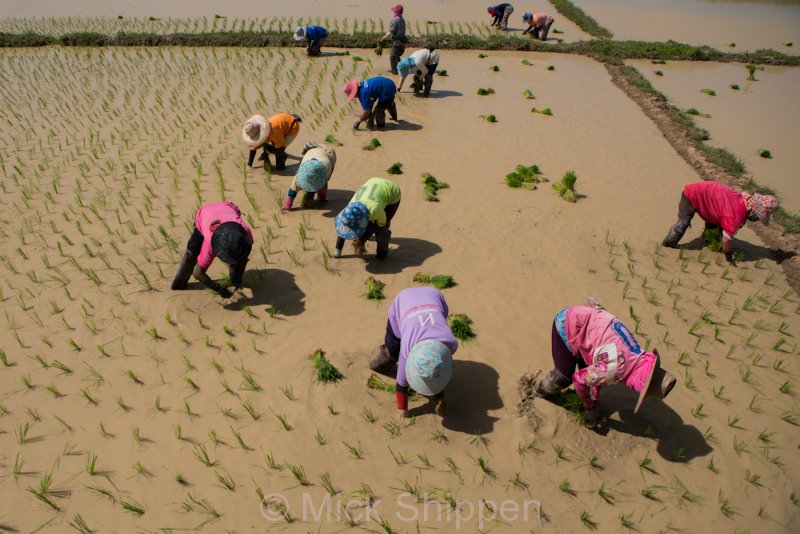
You can view several more images in the Thailand Gallery.
